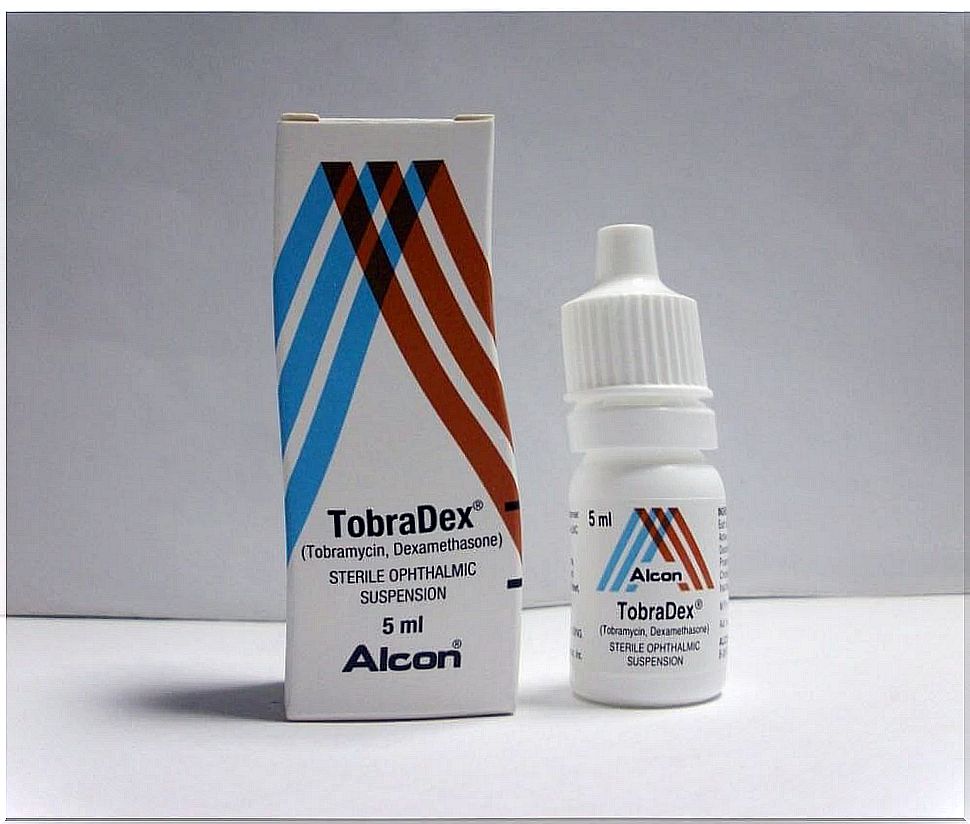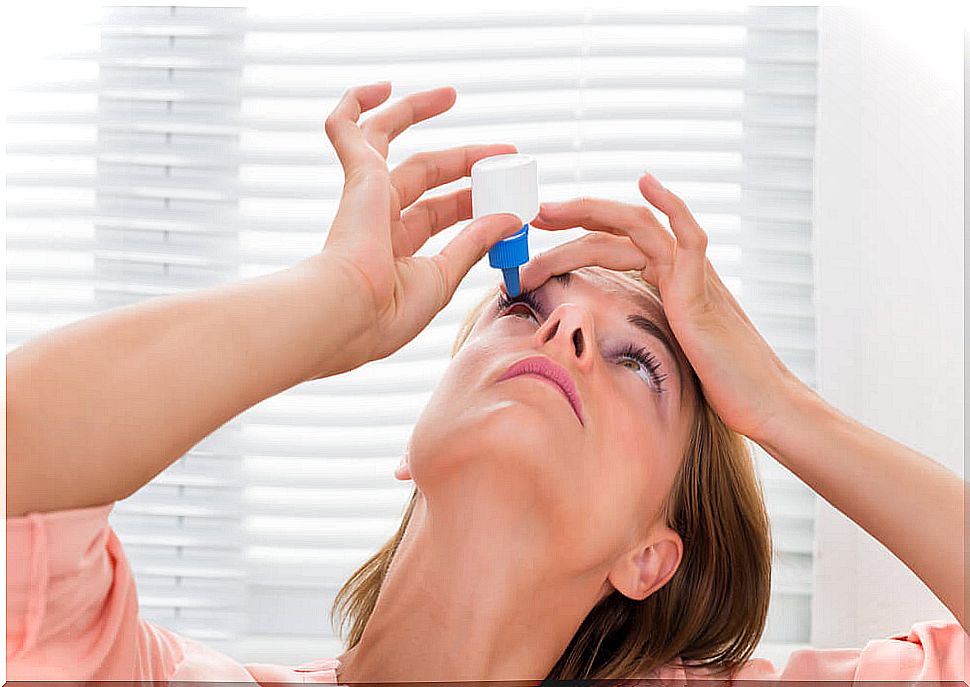Tobradex
Tobradex is a medicine that is made up of two active substances . An antibiotic (tobramycin) and a corticosteroid (dexamethasone). For this reason, it is used as a treatment for eye infections. Have you ever been prescribed it or have you known someone who has had to use it? Are you interested in knowing more about it? If so, do not stop reading everything that we are going to tell you below.
Indications
Tobradex is a type of ophthalmic suspension that is indicated in ocular infectious processes. Especially those that occur with inflammation of the conjunctiva, chronic anterior uveitis or corneal damage. It is also used as a prophylactic for infections that can develop after a surgical process.
It is used both for the treatment of infectious processes and for their prophylaxis. Also, this drug is the first-line treatment when there is a high risk of infection. Also in cases of chemical burns in this area.
Mechanism of action

As we have already mentioned, the compound consists of two active principles. Tobramycin and dexamethasone. An antibiotic and a corticosteroid. Drugs that have different pharmacological mechanisms and actions.
The joint administration of these two compounds causes a synergy of their effects. On the one hand, they reduce the inflammatory processes associated with infection. On the other hand, they prevent the spread of it.
Tobramycin
Tobramycin is a bactericidal antibiotic. That is, it will act by preventing bacterial growth. Since it will inhibit the synthesis of its proteins.
This inhibition is carried out by binding to bacterial complexes. Altering the structure of its proteins and losing its functional capacity. So they will not be able to carry out protein synthesis.
Importantly, tobramycin is a very powerful antibiotic. In fact, it is broad spectrum and very fast acting. So it is considered a star drug in the treatment of eye infections. As for example to treat conjunctivitis.
Dexamethasone
Dexamethasone is a fluorinated corticosteroid for systemic use. It has a high anti-inflammatory and immunosuppressive power. In addition, it has a very high half-life. So it will have a much longer lasting effect on the body.
Dexamethasone crosses cell membranes and binds to various cytoplasmic receptors. That is, from inside the cell. This triggers a series of responses aimed at controlling local inflammatory processes. It also intervenes in the suspension of the immune responses of the infection.
Tobradex dosage and administration

Tobradex is administered by drops applied to the ocular surface. The recommended dose in mild infections is 1 or 2 drops. Every 4 to 6 hours for the first two days. Although a specialist should be consulted in case of any doubt.
In the case of more serious infections, the frequency of administration can be increased to 1 or 2 hours. And later reduce the dose to guarantee the disappearance of the symptoms.
On the other hand, there are no studies of tobradex in pregnant women. Therefore, it should only be used in cases where the benefit to the mother is greater than the risk to the fetus.
Adverse reactions
According to what is stated in the Medline Plus portal, adverse effects are very unlikely, and in most cases of a mild nature. Only some patients have symptoms and these may be the following:
- Tearing
- Eye pain
- Itching in the eyelid.
- Conjunctival erythrema.
- Ocular hypersensitivity.
- Inflammation of the eyelids.
Caution should be exercised if a patient is being treated concurrently with tobradex and systemic aminoglycoside antibiotics. Since this interaction can produce: deafness, kidney damage and balance disorders.
Adverse reactions manifest with an increase in intraocular pressure. There is also the possibility of developing glaucoma.
Contraindications

Tobradex is contraindicated in people with hypersensitivity to the formula. Or that they simply have any of the following diseases:
- Herpes simplex.
- Dentritic keratitis.
- Fungal eye infections
- Diseases of other parts of the eye.
It is important to follow the doctor’s guidelines when using this medicine. In case of doubt, the pharmacy can also give us directions. But what we should never do is alter the doses without consulting a specialist, since doing so could expose ourselves to adverse reactions and complications.








